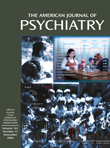Pregnancy and Antidepressant Counseling
To the Editor: It was with great interest that we read the article by Adele C. Viguera, M.D., et al. (1) published recently. These results confirm what we have been aware of for many years: that pregnant women are not being counseled appropriately concerning drug therapy and reproductive risks.
The Motherisk Program is a counseling service for pregnant and lactating women and their health professionals, in which evidenced-based information is given on the safety/risk of drugs, chemicals, radiation, and infectious diseases to almost 40,000 callers/year. We published a study documenting the experiences of 36 women who had abruptly discontinued antidepressants or benzodiazepines upon finding out they were pregnant (2). All of the women reported discontinuation for fear of teratogenic risk, and 28 (77%) discontinued on the advice of their physicians. Despite receiving reassuring counseling that it would be appropriate to continue their medication, only 22 (61%) chose to do so (2).
To determine why these decisions were made, we are now carrying out a study to enroll women who are planning pregnancy or are in the first trimester who are taking an antidepressant. Two control groups of women have also been enrolled in the study: women taking nonpsychiatric drugs 1) on a long-term basis and 2) on a short-term basis. Our hypotheses are that there is still a stigma surrounding mental illness and that women are more cautious about taking a psychiatric drug during pregnancy. We asked the same questions of all three groups. Our preliminary results are that after all three groups had been advised that it was appropriate to continue their medication during pregnancy, 15% of the antidepressant group compared to 3.8% of the chronic medication group and 1.2% of the short-term treatment group decided to discontinue their drug. What we also found was that many factors come into play in the perception of teratogenic risk; however, in the determinants of decision making, the most important factor was the order in which the information was given to them, with the initial information having the most lasting effect (3).
We are sharing this information because we feel that it is an important area of research to ensure that women who are suffering from a mental illness are appropriately treated during pregnancy to ensure optimum conditions for both mother and child.
1. Viguera AC, Cohen LS, Bouffard S, Whitfield TH, Baldessarini RJ: Reproductive decisions by women with bipolar disorder after prepregnancy psychiatric consultation. Am J Psychiatry 2002; 159:2102–2104Link, Google Scholar
2. Einarson A, Selby P, Koren G: Abrupt discontinuation of psychotropic drugs due to fears of teratogenic risk and the impact of counseling. J Psychiatry Neurosci 2001; 26:44–48Medline, Google Scholar
3. Bonari L, Einarson A, Jasper JD, Einarson TR, Koren G: Determinants of women’s decision making regarding the use of antidepressants prior to and during pregnancy, in Abstracts of the 2002 Canadian Psychiatric Association Annual Meeting. Ottawa, CPA, 2002Google Scholar



